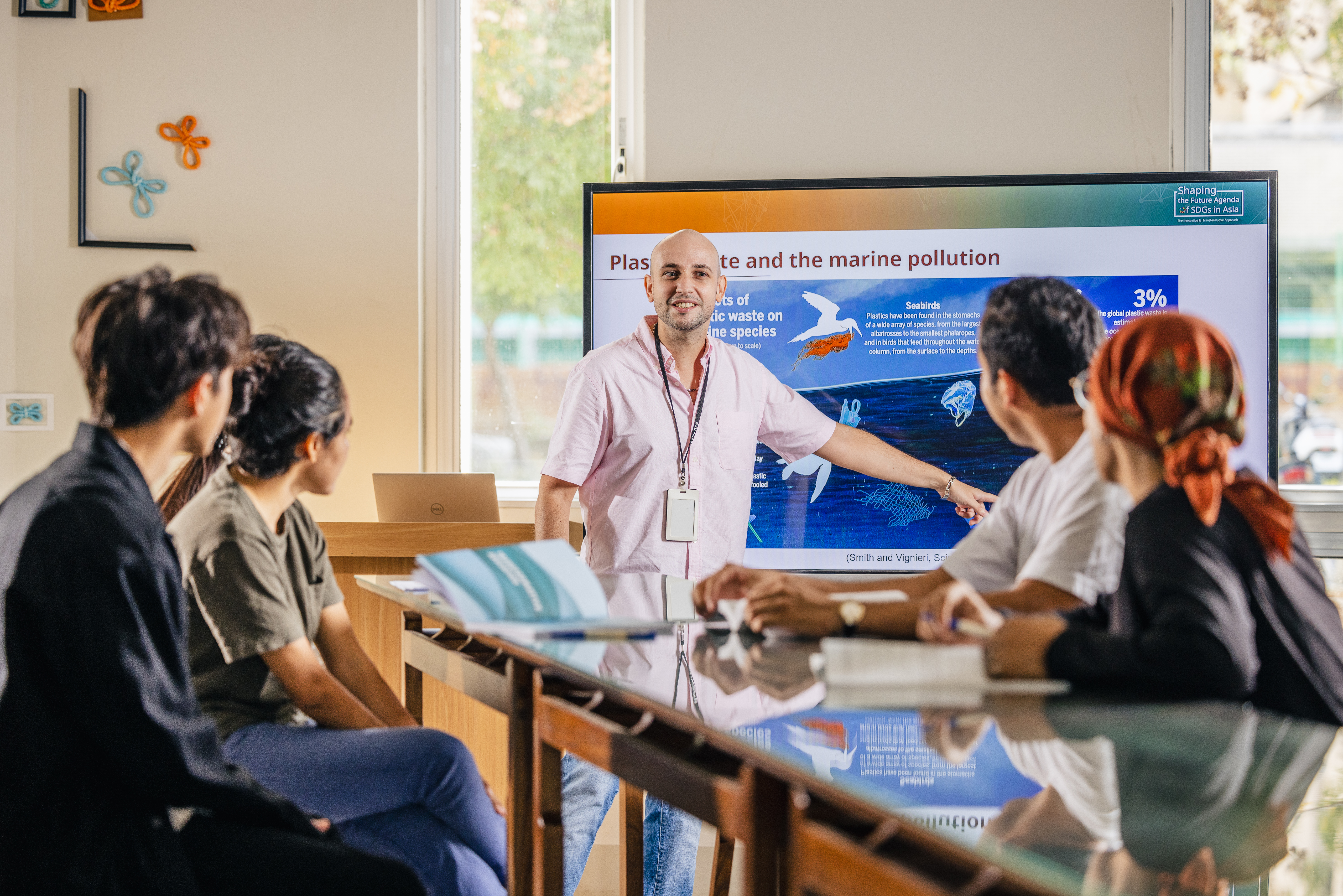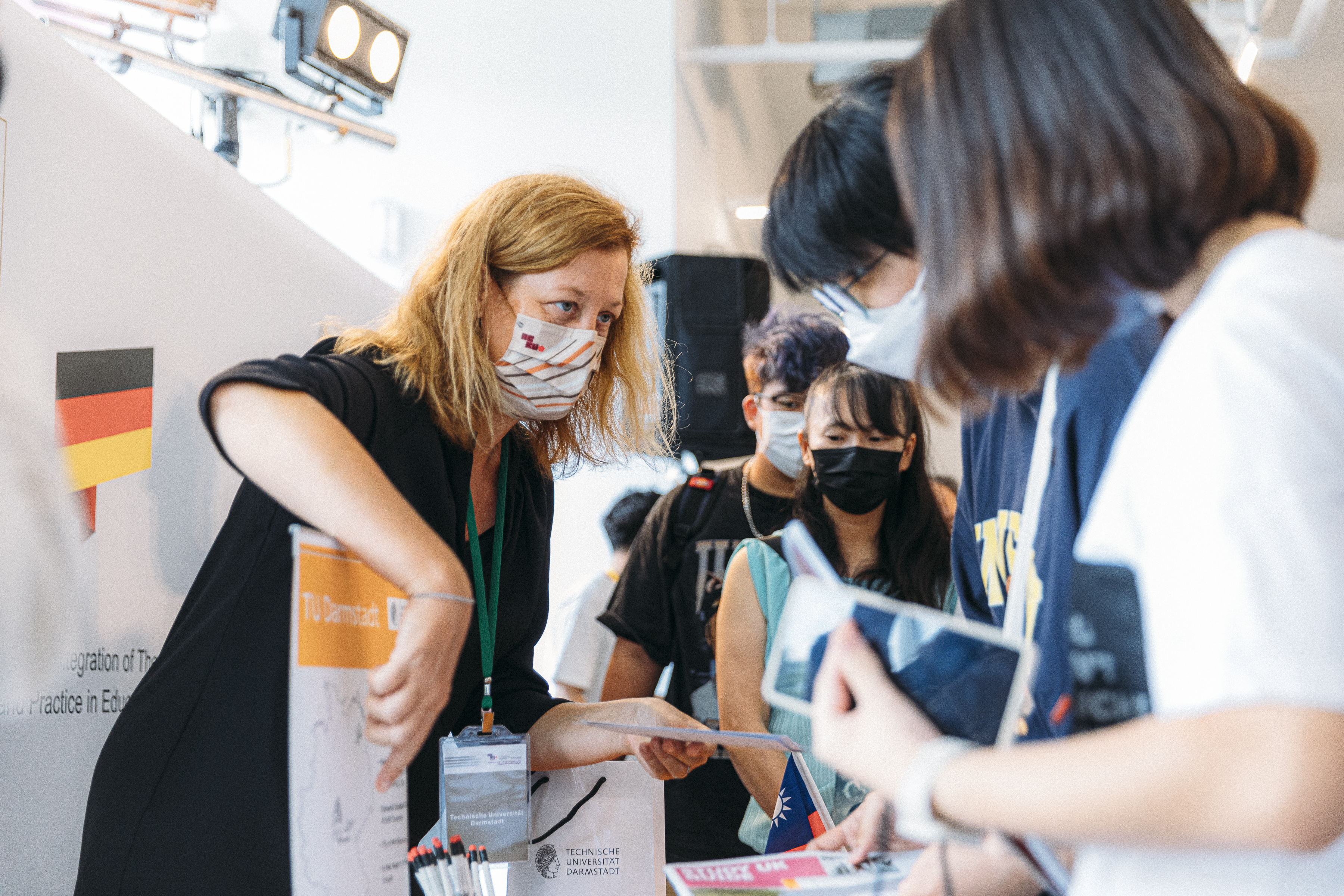Abstract
2021/2022 NCKU BEST Program Summary of Achievements
Program Features
As a top-tier educational institution, National Cheng Kung University has long focused on enhancing global competence and resilience to challenges, ensuring that NCKUers can effectively respond to social issues in an increasingly fast-paced society. NCKU is the only university in Taiwan that promotes bilingual education to raise "global competency." Adhering to Taiwan's Bilingual 2030 Plan, the university drives the cultivation of global competency based on the four fundamental elements of "language," "knowledge," "understanding," and " attitude and value." The NCKU Bilingual Education for Students in College (BEST) Program aims to promote communication, exchange, and share values and cultures in an open and accessible campus; foster worldview, ambition, and excellence; and fulfill the responsibilities of a global citizen. Through the BEST Program, the university aspires to refine students' professional competency and language proficiency, enhancing their cross-lingual and cross-cultural communication skills and cultural sensitivity and ultimately helping them compete internationally.
The NCKU Program is subdivided into action plans for enhancing the language proficiency of three groups: students, teaching staff, and administration staff. Through language learning, the Program hopes to deepen participants' understanding and acceptance of different cultures while recognizing the values of the new generation. The main objective of the Program is to provide participants with a set of formal courses, extracurricular activities, and learning spaces in which to develop their language skills and learn to wield language as a tool for conveying concepts and ideas in everyday life, at school, and in the workplace.
Highlights
Institutional Strategy and Management:
The Office of Strategic Planning is designated as the on-campus promotor of the BEST Program. It consolidates local and international resources and conceptualizes action plans that the administrative divisions and nine colleges of NCKU implement to promote the BEST Program. In addition, the Bilingual Education and Engagement Resource Center under the Office of Academic Affairs is responsible for overseeing the development of EMI courses and educators and the promotion of EMI in the region.
Teachers and Teaching:
1. Established a professional competence database for EMI educators, assessed the competence of full-time faculty members in teaching EMI, tracked the EMI development of full-time faculty members, and assisted the university in formulating EMI support strategies for faculty members.
2. Promoted an on-campus EMI certification system to recognize faculty members with degrees from English-speaking countries who have completed at least 2 EMI training courses or scored above average on a satisfaction survey for all-English instruction and encourage educators to participate in EMI.
3. Professional development activities: A total of 19 EMI workshops and 10 EMI observations were organized, achieving an overall faculty attendance rate of 68.14%,
Students and Learning:
1. EMI teaching assistant recruitment and training: Recruited 64 teaching assistants for English Corner and EMI Bridge Courses, organized English-speaking events to help students improve English-speaking proficiency, and recorded EMI Bridge Courses to help students familiarize themselves with English in professional settings.
2. Increased EMI interest and participation:EMI undergraduate participation increased from 4.44% to 6.31%, while EMI graduate and postgraduate participation rose from 19.52% to 22.1%. The proportion of sophomore year undergraduate students who selected EMI courses for over 20% of their credit requirements rose from 6.37% to 11.28%, while that of first-year graduate students increased from 25.10% to 35.53%.
3. EMI learning survey and analysis: Eight EMI courses offered at NCKU were sampled. Five hundred ninety-six enrolled in the eight courses, 239 of which participated in the questionnaire survey for a participation rate of 40.1%. Of the respondents, 62% believed the EMI courses were practical, and 64% expressed that they benefited academically from EMI.
4. EMI-related competitions: NCKU held English presentations and short-film competitions to encourage students to showcase their professionalism and English proficiency.
International Experiences:
1. Global Competence Advancement Center (GCAC): GCAC hosts the Global Mobility Forum and provides student counseling, guidance, and student-driven programs to encourage English exchange between international students and local faculty members. The Center also offers English writing consultation, overseas employment workshops, and overseas study information to help students improve their English proficiency and cross-cultural sensitivity. A satisfaction survey of close to a thousand participants showed that 88% agreed that the activities helped improve their global competency.
2. School of Sustainability: The School for Sustainability focuses on introducing students to complex sustainability challenges and helping them develop the knowledge and skills needed to implement solutions. It not only offers several all-English credit programs and degree programs but also operates the Sustainability Collective platform to share knowledge, contacts, and research and expand the voice of sustainability.
3. International Summer School: The NCKU International Summer School offers all-English courses and activities focused on sustainability and recruits jointly with the World Universities Network, Osaka University, Chinese University of Hong Kong, and SATU Presidents’ Forum. The 2021 cohort comprised 53 students from Taiwan, the Philippines, Japan, Indonesia, Thailand, Singapore, Malaysia, and Australia.
Information Transparency:
1. International Bilingual Education Forum and Exhibition: The NCKU organized the Bilingual Education Forum (Taipei) and Bilingual Education Exhibition (Tainan) to promote its BEST Program to the general public. The Bilingual Education Forum invited representatives from the Ministry of Education, AIT, British Council, and CTOT as well as enterprise leaders, to share their experiences on bilingual education and international talent cultivation. The Bilingual Education Exhibition invited representatives from AIT, Australian Office, CTOT, Office of Academic Affairs, and Office of International Affairs to promote NCKU's BEST Program to on-campus students, students in Tainan, and the general public and share international education resources. The two events were live-streamed to connect the people of Tainan to the world. The two events collectively attracted nearly 200 industry professionals, educators, and general visitors, greatly enhancing the visibility of NCKU's bilingual learning plan.

